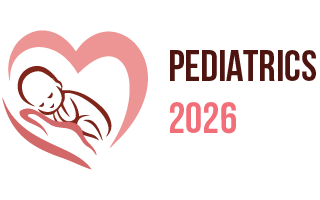4th International Conference on
Pediatrics & Neonatology
August 13-14, 2026 | Barcelona, Spain

Address: Avinguda Del Maresme 78 Ronda De Dalt Exit 15, 08940 Comellà de Llobregat, Barcelona, Spain
Pediatrics 2026

The Chinese University of Hong Kong, Hong Kong
Abstract:
Eczema is the most common chronic skin disease in children, which often marks the start of an atopic march when infants develop features of airway allergies in the next few years of life. Epidemiological studies suggested wide variation in prevalence of eczema globally, and it affects up to one-third of schoolchildren in many Asian populations. Birth cohorts from my group reported that two-fifths of Chinese infants developed eczema at some point during the first year, but nearly half of them resolved beyond infancy. The pathogenesis of eczema involves epidermal barrier defects, dysregulated cutaneous and systemic immunity and microbial dysbiosis on the skin. Specific to the last feature, it has been known for many years that different staphylococci play contrasting roles on healthy versus diseased skin. For example, Staphylococcus epidermidis and S. hominis are prevalent skin commensals in subjects without eczema. On the other hand, eczema flare is classically triggered by expanding growth of S. aureus. Recent in vitro studies suggested that some coagulase-negative staphylococci (CoNS) released lantibiotics that could suppress the growth of S. aureus. A proof-of-concept phase 1 clinical trial revealed possible benefits through topical application of S. hominis A9 strain on S. aureus growth and severity of eczema in the treated patients. In summary, different staphylococci appear to possess diverse regulatory and pathogenic roles in relation to eczema depending on different host factors. There are dynamic interactions among different staphylococci which may be employed to modulate S. aureus abundance and cutaneous inflammation. Further clinical trials are needed to delineate possible clinical benefits of such biotherapeutic strategy for eczema. (funded by Health and Medical Research Fund [reference 06170466] and Health and Medical Research Fund Commissioned Paediatric Research at Hong Kong Children’s Hospital [reference PR-CUHK-3] of Health Bureau, Hong Kong SAR Government)
Biography:
Professor Leung graduated from The Chinese University of Hong Kong in 1992, and he received subspecialty training on Immunology and Allergy in the Hospital for Sick Children in Toronto, Ontario, Canada in 1997-1998. He was awarded Doctor of Medicine degree by The Chinese University of Hong Kong in 2004 for his research works on immunogenetics of childhood asthma. Professor Leung was conferred as a First Fellow in Paediatric Immunology, Allergy and Infectious Diseases subspecialty by the Hong Kong College of Paediatricians in 2012. Professor Leung is a professor in Department of Paediatrics of The Chinese University of Hong Kong since 2009, and he chaired this Department in 2014-2020. He is also a visiting professor of the Central South University in Changsha, People’s Republic of China. Among many research achievements, Professor Leung was nominated to receive the Research Excellence in Allergic Diseases Award by the Hong Kong Institute of Allergy in September 2021. Professor Leung published more than 400 refereed journal articles and supervised sevenpost-doctoral fellows, 12 doctoral and 35 doctoral and master students as well as mentored 12 elite medical students under the Flagship programme Global Physician-Leadership Stream of the Faculty.
